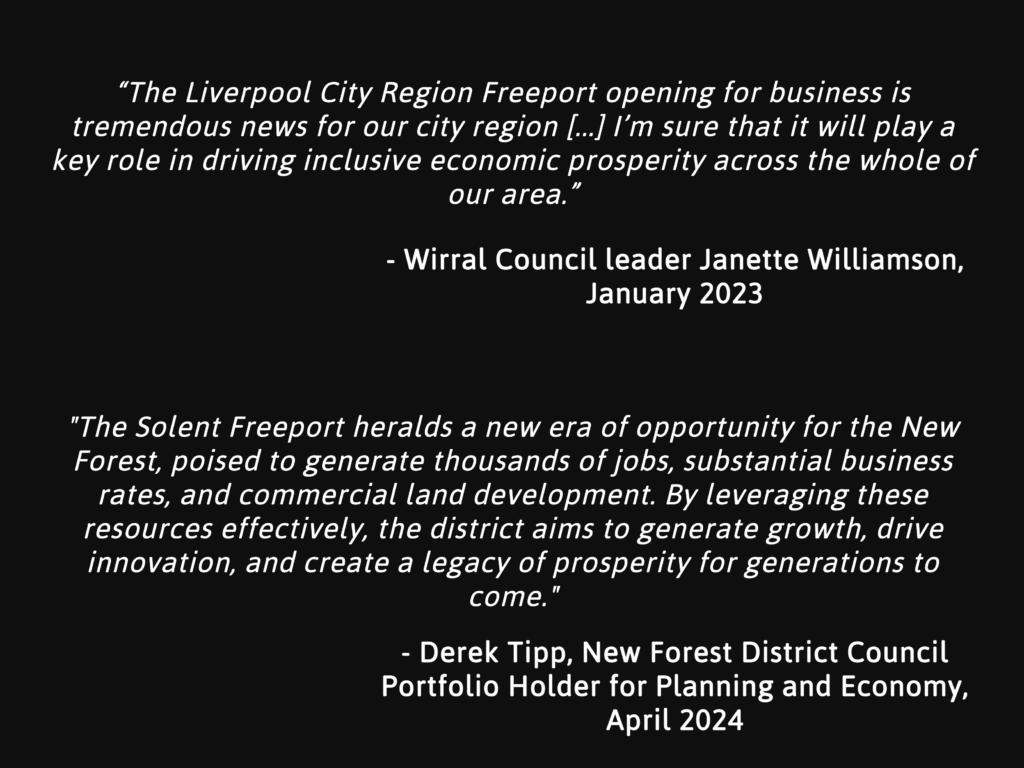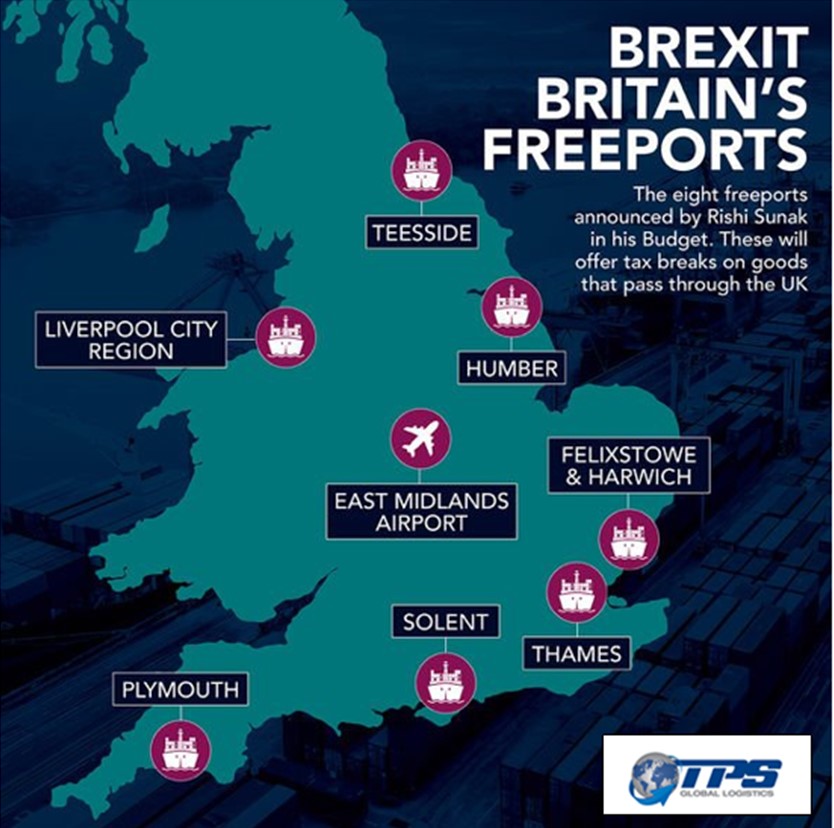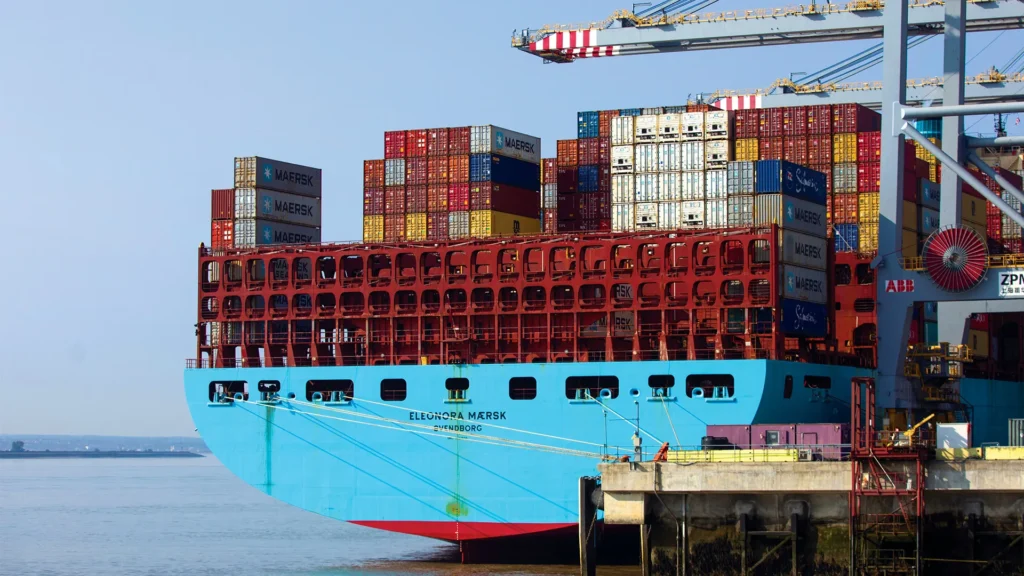By Linda Wall
Freeports are a cornerstone of the government’s levelling up agenda. And both Labour and Tory politicians wax lyrical about their benefits:

Freeports aren’t a new or a radical idea. We’ve seen it happen many times before: governments give certain regions special status in the hope of attracting inward investment. These special economic zones (SEZs) can take a variety of shapes and forms, but within all of them businesses have access to things like tax concessions, special customs arrangements, and lighter regulation, that the rest of the country doesn’t share.
In some countries, SEZs are literally places where bosses can get away with murder. In Shenzhen SEZ in China for example, most jobs go to migrant rural workers who have to suffer low wages, long working hours, and few working rights.

In the UK we’ve been assured that there’s no intention of dismantling employment regulations or environmental protections. This is a Tory gimmick though, so what’s the catch ? Well, there’s quite a few, as we shall see.
To begin with, let’s be blunt about it, Freeports are a licence for crony capitalism and corruption. Think about it. Big amounts of public money being pumped into regions that have been selected for reasons that are less than transparent, with all this money and power going into the hands of a few individuals who have lucrative contracts to toss in the way of big companies while the state looks on. What could possibly go wrong ?
In the flagship Teesside Freeport, we’ve already had a taste of what can go wrong. Teesworks, hailed as the largest regeneration project in the UK, which is to become 90% privately owned, being set up with £560 million of public funds including £246 million in government grants; the public purse taking on all the risk without a penny of matching funds from private investors. Decisions being made on it in semi-secrecy by a tiny group of officers, in a manner that’s been severely criticised in a recent report. Middlesbrough MP Andy McDonald has exposed the fact that developers made £68 million from a plot of land in Teesworks that the company had bought from the public sector for £1 an acre.
Does it have to be this way ? Can there be good, socially responsible Freeports, as Liverpool’s Metro Mayor Steve Rotheram would have us believe ?

If you really wanted to do things in a socially responsible way, you wouldn’t set up an SEZ in the first place. You’d seek a democratic mandate for your plans, explaining in advance exactly what they’d mean for people. You would put provisions in place that would protect workers, communities, local economies and the environment; consulting with trade unions, local businesses, green charities, and so on. You’d demand to see demonstrable long term results for your area for your investment – new apprenticeships, well paid jobs, better public transport links.
Freeports receive relief for a period of time from stamp duty land tax, National Insurance contributions, and business rates. Where is the extra government support for hard pressed local councils who need that business rate revenue to keep essential services going ?
What the defenders of Freeports always say is that they bring more investment and more jobs. Even this is disputed. There’s quite a bit of evidence that all they tend to do is to displace growth and jobs from one area to another, with little benefit to the wider economy.
SEZs and Freeports are fundamentally a bosses charter. They make it harder for unions to get a seat at the table, they take power away from local communities to make decisions about issues that affect them, they’re all about handouts to the rich rather than hand-ups to the poor, and they open the door to creeping privatisation.

It goes without saying that Freeport bosses have nothing to fear from a Starmer-led neoliberally minded Labour government.
So where might serious opposition to Freeports come from ? One of the most productive things for campaigners to do might just be to bring motions to their trade unions, and to try and get the unions to adopt new policy, and to commit to making this a campaigning issue.